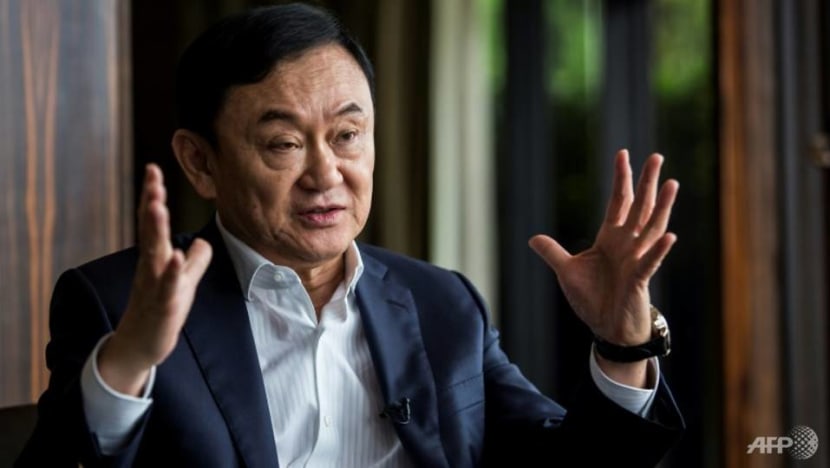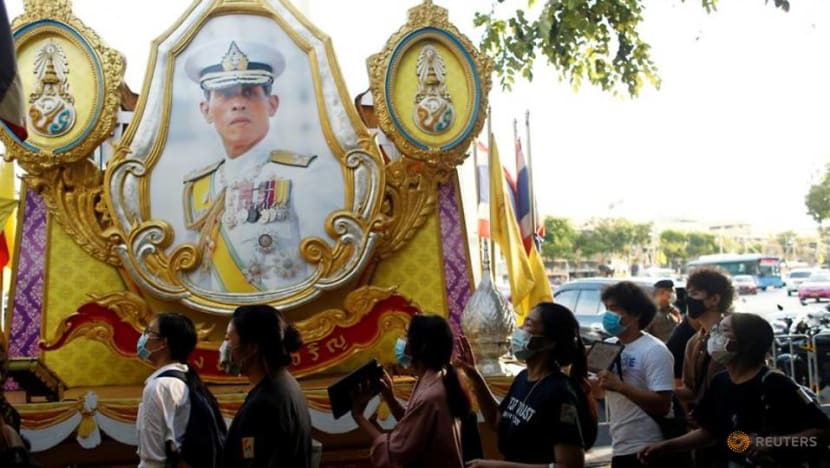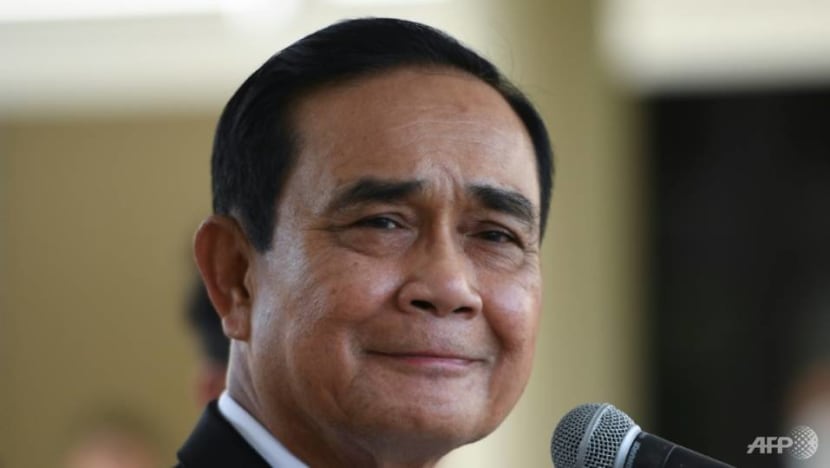commentary Commentary
Commentary: The Clubhouse app is a new avenue for political agendas in Thailand
Despite official warnings to users, the new audio-based social media app has gained much popularity in Thailand. Can the Government use the app to reach out to opponents, asks a Thai professor.

Audio-only social network Clubhouse has seen rapid growth and has some 10 million users even though it has not been opened to the public AFP/Odd ANDERSEN
SINGAPORE: Thousands of netizens are flocking to the popular Clubhouse smartphone application to discuss and listen to speakers on political concerns, even though the government has threatened to use the Computer Crime Act to prosecute critics of the government and the monarchy.
In operation since April 2020, Clubhouse is an audio-based social media application that has become popular among prominent politicians and government figures to communicate directly with various target groups in Thai society.
It later became popular among prominent politicians and government figures to communicate directly with various target groups in Thai society.
Compared to other social media apps such as Facebook and Twitter, Clubhouse boasts of several unique strengths: It is an invite-only platform, which lends it an aura of exclusivity.
READ: Commentary: What's behind new social media app Clubhouse's huge appeal
READ: Chinese users flock to US chat app Clubhouse, evading censors
The audio medium is able to combine traditional text chatrooms with the intimacy and immediacy of the human voice.
In Clubhouse, users are allowed to create groups and share stories. Each member can schedule and host a virtual room, and then decide who can speak in the chatroom. The duration of chats can range from a few minutes to several hours.
Everything is live and conversations cannot be saved or viewed after the event (though clips are occasionally posted on Twitter). People are free to jump from room to room.
ENTER 'TONY' OR THAKSIN ON CLUBHOUSE
Therein lies the power of the app compared to older social media such as Facebook and Twitter. In February, an intriguing development occurred. The pseudonym “Tony Woodsome” appeared for the first time on Clubhouse under the chatroom named “Those who were born during (the) Thai Rak Thai Party’s era come join here”.
“Tony Woodsome” turned out to be the pseudonym used by Thaksin Shinawatra, Thailand’s self-exiled former prime minister who was overthrown in a 2006 coup. It was the first time in a year that Thaksin had communicated with his followers – this time via the app.
Over 30,000 people listened to the talk, with multiple chatrooms broadcasting from the main stream due to a 5,000-person limit for each room on Clubhouse.

“Tony” talked about the protests by the young generation, challenges facing the small- and medium- enterprise (SME) sector, and the inadequate response by the government to foster and support start-ups and businesses, especially during the Covid-19 pandemic.
He also spoke about economic recovery and human rights.
READ: Frustration, worry, but little surprise as Clubhouse app is blocked in China
The exiled leader is not the only prominent personality who is tapping on the power of the application. In addition to Thaksin, other prominent politicians, celebrities and academics have started to use the platform to deliver information and conduct discussions on varied topics directly with the people.
These include Pavin Chachavalpongpun, a self-exiled academic and prominent long-time critic of the Thai monarchy; Thanathorn Juangroongruangkit and Piyabutr Saengkanokkul, founders of the progressive Future Forward Party; Kla Party leader Korn Chatikavanij, and Minister of Public Health Anutin Charnvirakul.
REACH AND FREEDOM A THREAT
As a testament to its growing reach, Clubhouse appears to be posing a serious concern to the current administration. Given that the app allows people to freely express their opinions on any topic over a call, some chats now include discussions about the country’s monarchy.
The Thai government has warned Clubhouse users that they would face legal consequences for violating the country’s cyber-crime legislation if they express opinions or give distorted information that denigrates the reputation of the monarchy or the government.
The Thai government has implemented a Computer Crime Act to prosecute online criticism on social media networks such as Facebook, YouTube and Twitter.
READ: Commentary: Thailand as a model? Why Myanmar military may follow Prayuth's example
The warnings, however, have failed to dampen enthusiasm for the app. Protest groups continue to use this platform to criticise the monarchy and to discuss the many alleged failures of the government.
According to Ms Wichuta Teeratanabodee, the platform helps to promote protestors’ pro-democracy agenda by giving them an accessible platform for advocacy.

Participants can have similar discussions with experts and public figures. If any participants disagree with something, they can also raise their hand in a chatroom and elucidate their perspectives.
Since Clubhouse is a real-time conversation, it is not easy for the Thai police to arrest or accuse anyone who insults the monarchy or the government.
As a testament to its growing reach, Clubhouse appears to be posing a serious concern to the current administration, as it allows people to freely express their opinions on any topic over a call.
POLITICAL AGENDA OFF THE STREETS AND ONLINE
Access to Clubhouse requires a smartphone. Still, the app makes it possible for protestors to take their agenda away from live gatherings and reach out more effectively without having to depend on mainstream media, which are partially controlled by the state.
READ: Commentary: Thailand has done well in taming the coronavirus pandemic so what’s with these protests?
Protesters have adopted Clubhouse as their new small-scale demonstration space. This shows that protesters are not discouraged by the government’s attempts at control, even though a number of people involved in recent protests have been charged under Section 112 (known as the lèse majesté law) and the Computer Crimes Act.

It is still not clear whether the new app will go mainstream. Currently, Clubhouse is only compatible with the iOS used in Apple’s iPhones.
Soon, however, more smartphone owners will be able to join Clubhouse after the Android version of the app is launched, likely in the summer of 2021.
The more interesting question here is whether Prime Minister Prayut Chan-o-cha will use this app, and follow the lead of leaders from other countries, such as South Korean Prime Minister Chung Sye-kyun.
While joining Clubhouse might provide a channel for Prayut to communicate rationally with his opponents, especially the younger generation, there are potential challenges for the government.
Prayut’s military mien has proven to be poorly equipped for audience questions. Mishandling such interactions might contribute to his negative image among youths rather than impress them. As such, the Prime Minister will have to think this through quite carefully.
(How do videos and photos of innocent victims end up on disgusting illicit Telegram chats? CNA's Heart of the Matter dives into how one young woman infiltrated those groups and reached out to victims:)
Dr Punchada Sirivunnabood is a Visiting Fellow at ISEAS – Yusof Ishak Institute. This commentary first appeared on the Fulcrum.
Editor's Note: This commentary has been updated on Apr 27 to reflect changes in the original piece on the Fulcrum.










